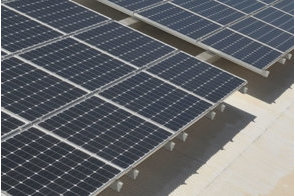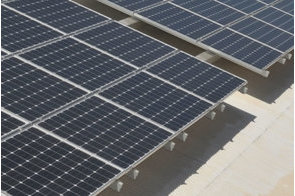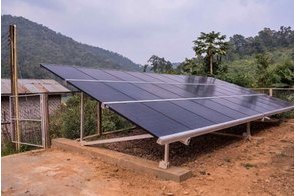Group indicts EU countries for slow transition to renewable energy

Summary
SiG said many EU governments are backing down from their leadership role in fighting climate change.
Sun Investment Group (SiG), a renewable energy company based in Poland, has said many European Union (EU) governments are backing down from their leadership role in fighting climate change, and still heavily relying on fossil fuels.
For instance, Belgium, Denmark, Germany and the United Kingdom are no longer the leaders in the fight against climate change, according to a study by Climate Action Network Europe (CANEurope). The countries have been silent about the Eropean Union’s goal for transitioning to renewables.
In a statement released on Thursday, SiG's CEO, Deividas Varabauskas, said many EU countries are still digging for coal. For example, last year, 37 percent Germany's electricity was powered by coal, and the country is still searching for new fossil fuels. Varabauskas said Poland is Europe’s biggest energy polluter due to its 90% reliance on coal.
“Fossil fuel will still be used at an alarming frequency all over Europe," said Varabauskas. "Our goal is to spread awareness that in the end, solar energy will be much more beneficial and more cost-effective, and I’m not even talking about the impact on global warming.”
SiG said the EU has a binding target of meeting 20% of European energy needs with renewables by 2020 and 27% by 2030. However, in June 2018, the EU had to increase its renewable energy target for 2030 from 27% to 32% due to increase in CO2 emissions witnessed in 2018 around the world.
Indeed, not all European countries have equal commitment and strategy to meet renewable targets, and many experts say the 32% target is too low. Germany, for example, has admitted that it will fail to meet its 2020 targets and will abandon the goal to be the pioneer in international climate policy.
Nevertheless, some EU countries – such as Spain, Holland, France and Hungary – have huge potential for solar energy development, according to SiG, which has an extensive experience developing solar power projects across Europe.
Solar PV is the fastest growing energy technology in world, and Europe is the world’s second-largest solar region, with a capacity of more than 100 gigawatts (up from just 3GW in 2006). Major developments underway include a 2,369-hectare plant in the Spanish region of Aragon, set to deliver 549 MW of renewable energy – the largest solar PV installation in Europe.
Poland is also slowly shifting towards renewables, despite it's high reliance on coal.
"Our biggest project at the moment is 43 solar energy plant portfolio in Poland that will be developed by Q2 2019 with a total investment of around 40 million EUR. The project represents around 15% of the country’s total solar energy market in Poland,” said Varabauskas.
SiG said the world is experiencing the effect of climate change. The summer of 2018 could be the hottest one on record in Europe, and the heat waves are promising to intensify in frequency. Global warming could see ocean levels rise by as much as 2 metres by 2100 – leaving much of the world’s land underwater.
"As solar energy companies attract increasing interest from investors and governments in Europe and elsewhere, they give hope to solving the looming global warming crisis," the renewable energy company added.
Related
-
Nigeria-focused renewable energy project wins financing contest
The project seeks equity financing to provide clean energy to telecom infrastructure in Nigeria, using solar mini-grids.
-
US agency awards grant to Dangote Industries for solar project in Kano
USTDA said the grant for the Kano Grid Connection feasibility study will assess the transmission system's capacity.
-
GE Africa, USADF announce 2017 Off-Grid Energy Challenge for women innovators
The contest is part of Power Africa’s Beyond The Grid initiative, aimed at driving investment in small-scale ...







